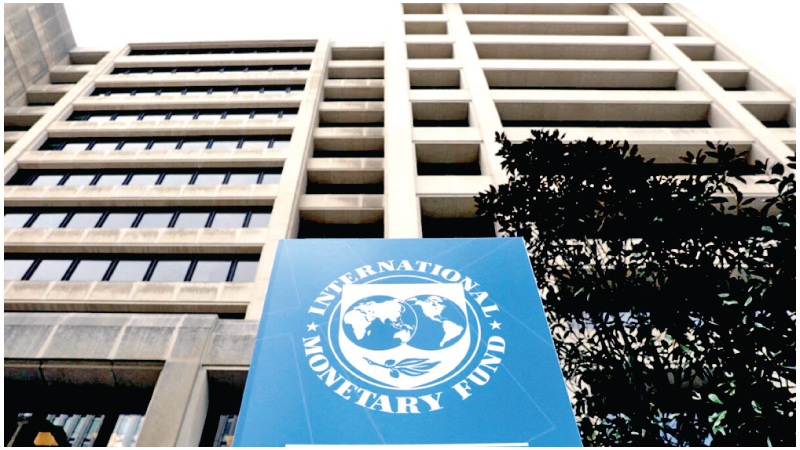
A Staff Level Agreement (SLA) on economic policies has been reached between the International Monetary Fund (IMF) and the Sri Lankan Government, concluding the second review of the IMF program. Following the review of the Executive Board of IMF, Sri Lanka will receive a financial facility of about US$ 337 million, under which the total amount of financial assistance provided by the IMF will be about US$ 1 billion.

Prof. Sirimal Abeyratne
Peter Breuer, the Head of the IMF Senior Mission for Sri Lanka, said that the results achieved by the reform program implemented by Sri Lanka are commendable and that successful progress is being made. Inflation has fallen at a faster rate than expected, and the action taken by the Sri Lankan Government has been evaluated.
Also, this SLA is subject to the approval of the management of the IMF and its Executive Board. The step of finalising the financial assurance review should be continued with a focus on whether sufficient progress has been made with debt restructuring to instil confidence.
It also states that Sri Lanka is making successful progress in implementing a reform program under the Extended Fund Facility (EFF), with commendable results including rapid reduction of inflation, strengthening foreign reserves and stability of the financial system and initial signs of economic growth.
Sri Lanka’s public finances have been strengthened following significant fiscal reforms. Economic performance has been strengthened by meeting all quantitative performance criteria and index targets by the end of December 2023, except for the index target of social expenditure.
With significant foreign exchange purchases by the Central Bank of Sri Lanka (CBSL), official reserves have risen to approximately US$ 4.5 billion by the end of February 2024. It is very important to maintain the pace of reforms to bring the economy to a path towards economic growth, including sustainability and stability. The Sri Lankan Government’s commitment to economic reforms has been acknowledged. There should be a bigger focus on increasing revenue administration, anti-corruption measures and tax collections.
The signing of Sri Lanka’s policy agreements is an important milestone in the move towards debt sustainability. A critical next step is to finalise agreements with official creditors and move towards programmatic agreements with major external private creditors in a timely manner. This will help restore Sri Lanka’s debt sustainability in the medium term.
Action Plan
The Action Plan recently announced by the Government is an important step towards implementing the key recommendations of the Diagnostic Report on Governance. It has also been emphasised that a sustained effort to implement these reforms is essential to address corruption risks, rebuild confidence in the economy and achieve stronger and more inclusive growth.
The IMF mission met with tea plantation workers in Nuwara Eliya to gain awareness of some of the most vulnerable challenges in Sri Lanka. It is also emphasised that continuous efforts to maintain the targeting, adequacy and improvement of coverage of social safety nets such as the Aswesuma in place to protect the poor and vulnerable are essential.
Although inflation has fallen faster than expected, continuous supervision is necessary to stop inflationary pressure and support macroeconomic stability. Also, with the introduction of a series of new economic reforms, we have made great progress, and although it has not been done completely, it has been successful to a large extent. The economic progress should be seen in two aspects.
In terms of achieving economic stability, measures taken by the Government to bring down inflation, strengthening public finances after fiscal reforms, bringing official reserves up to US$ 4.5 billion by February 2024, measures to increase revenues to achieve continuous progress, a reduction in commodity shortages will lead to lower interest rates and an improvement in the budget. When discussing the mid-term economy, they are all associated with economic stability.
We also have to discuss economic progress. There, the economic growth of our country, promotion of exports, increase in employment and investment should be discussed. Economic stability can be maintained stably and sustainably based on future work in this regard. Otherwise, it may be difficult to maintain our economic stability.
In discussing the challenges ahead, the IMF has reviewed the progress achieved. One thing we can clarify is that the hyperinflation we saw in the past years in the country has now decreased. We saw that it drove inflation up to 60 or 70 percent. At that time, Sri Lanka had the highest inflation rate in Asia. After overcoming that situation, we resolved the crisis very quickly.
With the proper use of monetary policy, we have been able to protect the main objective of the CBSL, price stability. According to the Central Bank’s inflation targets, inflation should be maintained between four and six percent. Today the rate of inflation is at a satisfactory level.
Also, improving the public finance sector here means improving the position of the Government and equalising or bringing the budget to a close. Some progress has been made on adopting policies to broaden the tax base. On the other hand, a great sacrifice was made by the people of our country. The people also made some sacrifices to bring the financial situation to this level. There were times when there was some anxiety. There was a big protest about this journey.
In spite of that, the people have reached this position by making those sacrifices and it can be expected that the people of the country will be able to enjoy the good results in the future.
As far as increasing the amount of foreign reserves is concerned, not much progress has been made in this regard. The main reasons are: We are getting multilateral loans and project loans. Foreign migration has increased due to the increase in tourist arrivals. These facts have increased the amount of foreign reserves and also increased bilateral receipts. It should be possible to increase the amount of foreign reserves mainly from these sources.
We have raised US$ 4.5 billion. To sustain this, it is clear that we will be able to acquire an ever-increasing amount of reserves that will not fall to the bottom only through the promotion of exports and the influx of foreign investments. We should hope to go there in the future. But it is difficult to see a satisfactory situation.
Macroeconomic policy reforms have started bearing fruit. It is important to focus on governance weaknesses and the risk of corruption in order to sustain the reform momentum. Achieving economic progress in the medium term, export promotion, investment promotion, job creation is necessary to achieve economic growth. In addition, two important issues have been focused on. Our work is blocked by rules and regulations in various places that waste a lot of time even if we do small tasks. That is what it means to remove control errors.
It actually affects investments as well. Investors are concerned about how easily they can get their work done. That is, how easy it is for them to do business in this country. We have not made any progress towards that. For many decades, we have been at the bottom among Asian countries.
There is confusion regarding each sector of the public sector, the increase in the number of public employees, the complexity of the institutions and the lack of anyone to raise questions about the plans, goals and performance of the institutions. This needs to be reworked. Also, fraud and corruption have spread from top to bottom in our country. No progress has been made in these areas for a long time. Such reasons affect the progress of investment in economic growth. If more attention is paid to these matters, it will lead to a complete recovery from the economic crisis and Sri Lanka will become a developed and wealthy country.
Translated by Jonathan Frank




